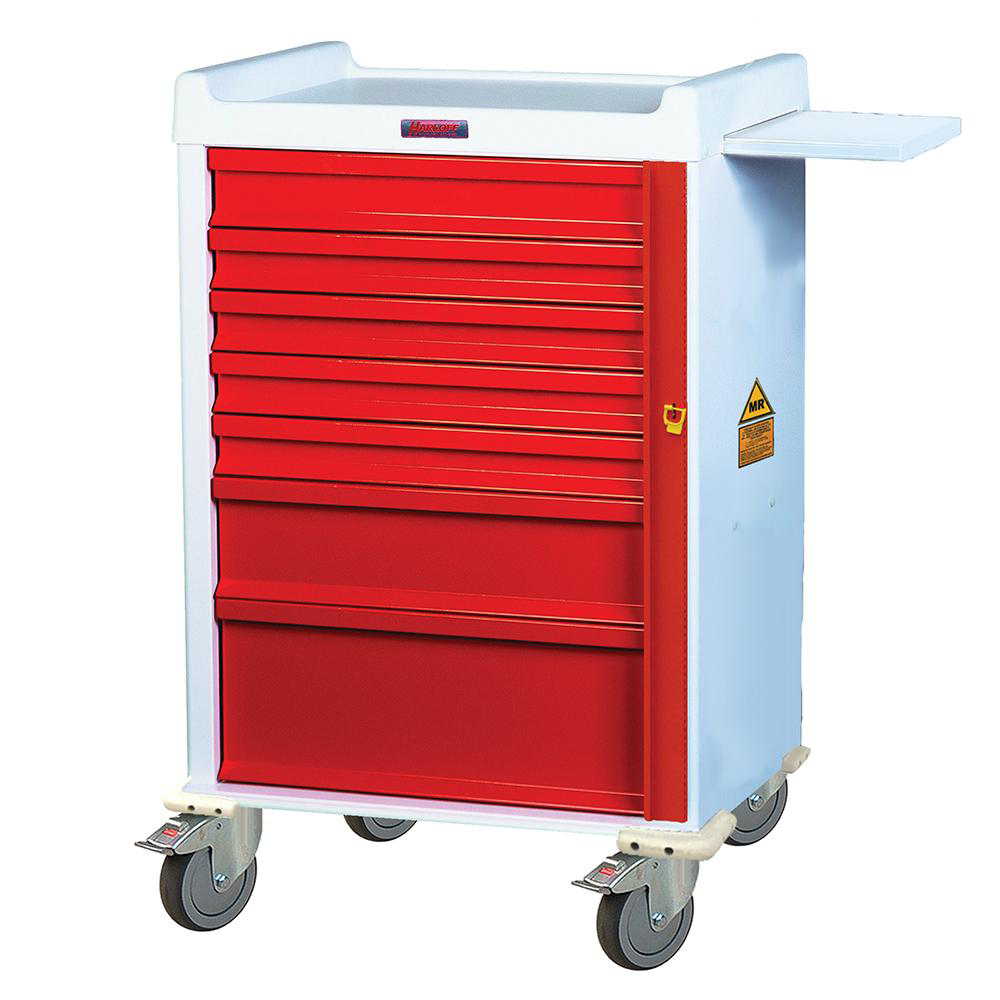-

Standard Line Med Bin Cart - SL36BIN5
$4,494.00
The Pros and Cons of Disposable Medical Supplies vs. Reusable
-
Jun 05,2023
When it comes to medical supplies, there are two options: disposable or reusable. But which one is the best choice for healthcare professionals and patients alike? What are the advantages and disadvantages of each option?
Disposable medical supplies are designed to be used once and then thrown away, while reusable supplies can be sterilised and used again. The debate over which option is superior has been ongoing in the healthcare industry for years, with both sides presenting valid arguments.
It's important to weigh the pros and cons of disposable and reusable medical supplies before making a decision. While disposables may offer convenience in terms of infection control, they can also create environmental waste. On the other hand, reusables may save money in the long run, but they may require more upkeep and careful handling. In this article, we'll explore the benefits and downsides of both options to help you make an informed decision.
There has been an ongoing debate in the healthcare sector on whether disposable or reusable medical supplies are the better option. On one hand, disposable supplies provide convenience and reduced infection risk. On the other hand, reusable supplies are more cost-effective in the long run and have a lower environmental impact. It is crucial to weigh the pros and cons of each option to make informed decisions about which supplies to use in healthcare settings.
Pros of Disposable Supplies
Convenience- Disposable supplies are easily accessible, available in large quantities, and require no preparation for use. This makes them a convenient option for healthcare providers who need to access medical supplies quickly.
Reduced risk of infection- Disposable medical supplies are single-use and designed for specific procedures. This minimises the risk of infection transmission, especially in high-risk settings such as surgery rooms.
Cost-effective for certain items- Some disposable medical supplies can be more cost-effective than reusable ones. For instance, disposable gloves, needles, and syringes are cheaper than their reusable alternatives. They also reduce the need for sterilisation, packaging, and transportation, which can add to the overall cost.
Cons of Disposable Supplies
Environmental impact- Disposable supplies generate a significant amount of waste, leading to environmental pollution and additional costs for waste management. The materials used in disposable supplies are often not biodegradable, resulting in long-term consequences for the environment.
Potential for lower quality materials- To reduce the cost of production, some manufacturers may use lower quality materials, resulting in equipment that is less durable, weaker, or more prone to breakage.
Increased cost over time- While some disposable supplies may initially be cheaper than their reusable counterparts, the cost can add up over time for high-use items. The constant need for replacement can quickly become costly.
Pros of Reusable Supplies
Reduced environmental impact- Reusable medical supplies can be used multiple times, reducing waste, and pollution.
Potential for higher quality materials- Reusable supplies can be made from high-quality materials and are designed to last a long time, providing durability and reliability in the long-term.
Cost-effective in the long run- High-use reusable supplies can be more cost-effective than disposable supplies in the long run, reducing the need for constant replacement.
Cons of Reusable Supplies
Potential for infection transmission- Reusable supplies require cleaning and sterilisation between uses, and if not done correctly, can result in the transmission of infections between patients.
Increased maintenance and sterilisation costs- Reusable supplies require regular cleaning, maintenance, and sterilisation, which requires additional costs for equipment and training.
May require training for proper use- Reusable supplies may require additional training on proper use and maintenance to ensure they are effectively used.
Considerations for Choosing between Disposable and Reusable Supplies
Budget- Healthcare providers need to consider their budget when deciding which supplies to purchase. Disposable supplies may be cheaper initially but can become more expensive over time. Reusable supplies have higher upfront costs but can be more cost-effective in the long-term.
Type of medical procedure- The nature of the procedure affects the type of supplies needed. High-risk procedures such as surgeries require disposable supplies to minimise the risk of infection transmission.
Potential for infection transmission- Healthcare providers must recognize the potential for transmission and select appropriate supplies that minimise the risk.
Environmental impact- Healthcare providers must consider the environmental impact of their supplies and strive to minimise their carbon footprint.
Conclusion
In conclusion, both disposable and reusable medical supplies come with their advantages and disadvantages. Disposable supplies provide convenience and reduced risk of infection but are environmentally unsustainable and may increase overall costs over time. Reusable supplies are better for the environment and offer cost-effectiveness in the long-term but require additional costs for maintenance and sterilisation. Healthcare providers must weigh the pros and cons to make informed decisions about their supplies to achieve the best outcomes for their patients, budget, and the environment.




